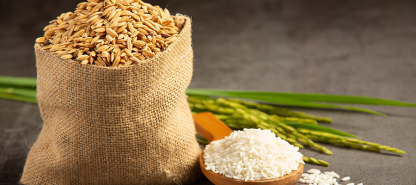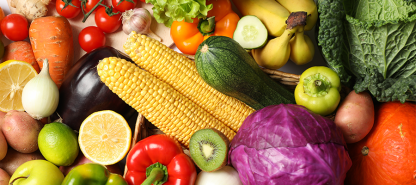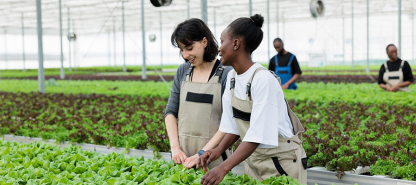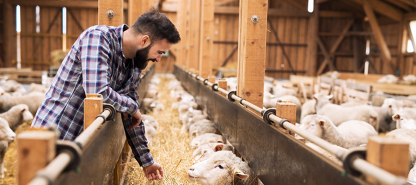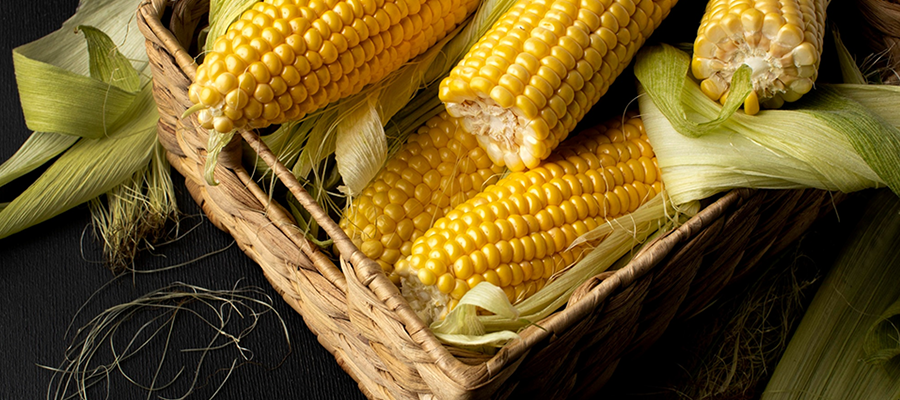
- 01 Oct 2024
Sustainable Corn Farming: Growing Towards a Greener Future
Exploring Sustainable Corn Farming
Corn is one of the most widely grown crops globally, serving as a crucial staple for food, animal feed, and biofuel production. However, traditional corn farming methods often rely on heavy chemical inputs and monoculture practices, which can degrade soil health and negatively impact the environment. Sustainable corn farming seeks to address these issues by implementing eco-friendly practices such as crop rotation, reduced chemical usage, and precision agriculture.
These methods not only enhance soil fertility but also reduce water and pesticide consumption while promoting biodiversity. Farmers who embrace sustainable corn farming are not only protecting the environment but also ensuring that their fields remain productive and resilient for future generations.
Through these innovative practices, sustainable corn farming represents a critical shift towards more responsible agricultural systems that prioritize both productivity and ecological health..
The Benefits of Sustainable Corn Farming
Sustainable corn farming offers numerous advantages that contribute to environmental health, economic viability, and food security. Here are some key benefits:
1. Reduced Environmental Impact
By minimizing chemical inputs through practices like organic fertilization and integrated pest management, sustainable corn farming decreases pollution and preserves water quality, benefiting surrounding ecosystems.
2. Enhanced Soil Health
Practices such as crop rotation and cover cropping improve soil structure and fertility. Healthy soils support better nutrient retention, leading to higher yields and reduced erosion over time.
3. Improved Water Efficiency
Sustainable farming techniques, including precision irrigation, optimize water use. This not only conserves this vital resource but also reduces runoff and water waste.
4. Increased Biodiversity
Diverse cropping systems promote biodiversity by providing habitats for various species, from beneficial insects to soil microorganisms. This diversity enhances ecosystem resilience and reduces pest outbreaks.
5. Greater Resilience to Climate Change
Sustainable corn farming practices help farms adapt to climate fluctuations. Healthier soils and diverse crops are better equipped to withstand extreme weather events, ensuring more stable production.
6. Long-Term Profitability
By reducing input costs and enhancing productivity, sustainable corn farming can improve farmers' bottom lines. Sustainable practices often lead to higher-quality products that can command premium prices in the market.
7. Enhanced Food Security
A sustainable approach to corn farming contributes to food security by ensuring a stable supply of this essential crop while reducing reliance on harmful agricultural practices.
Investing in Sustainable Corn Farming Projects
Investing in sustainable corn farming projects presents a compelling opportunity for those looking to align their financial goals with environmental responsibility. As global demand for corn continues to rise, these initiatives not only promise stable returns but also contribute positively to ecological and social well-being. Here are some key considerations for investing in this sector:
1. Market Demand
The increasing global demand for sustainably produced food creates a favorable market for corn farming. Consumers are becoming more aware of environmental issues, leading to a growing preference for products that are grown using sustainable practices.
2. Eco-Friendly Practices
Investing in projects that utilize eco-friendly farming techniques—such as crop rotation, reduced pesticide use, and precision agriculture—helps mitigate environmental impacts. These practices enhance soil health, conserve water, and promote biodiversity.
3. Risk Management
Sustainable farming practices often lead to more resilient agricultural systems. By diversifying crops and employing regenerative techniques, farms can better withstand climate change and economic fluctuations, thereby reducing investment risk.
4. Long-Term Viability
Investing in sustainable corn farming is a forward-looking choice. As regulatory pressures and consumer preferences increasingly favor sustainable practices, these investments are likely to yield positive long-term returns.
5. Support for Local Economies
Sustainable corn farming projects often engage local communities, providing jobs and supporting local economies. By investing in these initiatives, you contribute to community development and food security.
6. Innovative Technologies
Consider supporting projects that integrate innovative technologies, such as precision farming tools and data analytics. These advancements can optimize resource use and improve crop yields, enhancing overall productivity.
7. Environmental Impact
Investing in sustainable corn farming helps reduce the agricultural sector's carbon footprint. By supporting practices that promote soil health and decrease chemical usage, you contribute to the fight against climate change.

